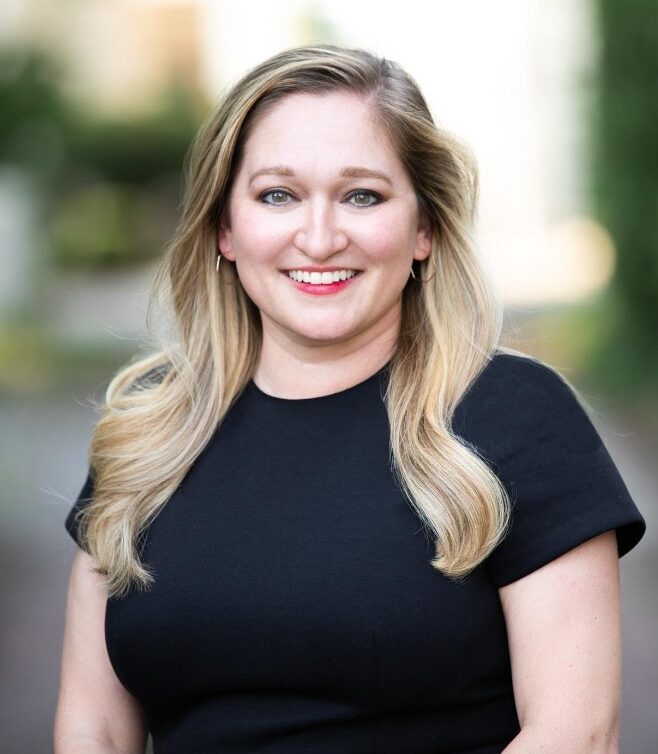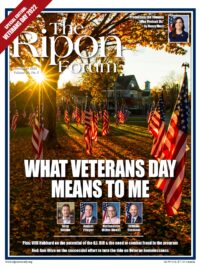
For decades, we’ve expected young Americans to graduate high school, go to college, and then get a job. Somewhere along the way, though, our institutions lost the trust of the next generation and they began to question the value of this path.
It’s time to rethink the path to success for our nation’s youth and rebuild trust along the way by prioritizing opportunities that bring people from different backgrounds together through a shared goal and common purpose.
Every young person in America should spend a year in national service.
As an AmeriCorps VISTA alum, my year of service taught me first-hand about the power of national service to launch youth on pathways to success, transform communities, and bring people together.
When I graduated college in 2008, our economy was tanking and our institutions were failing me. I was under the impression that if I worked hard and graduated from college, I could find a job and be successful. But that was far from my reality. Fortunately, I found national service, and the experience shaped my career and led me to my position today as the CEO of Service Year Alliance, a nonprofit that envisions a future where a year of national service is part of growing up in America.
More young people should have access to these life-changing opportunities that bring them closer to their communities and their fellow citizens.
More young people should have access to these life-changing opportunities that bring them closer to their communities and their fellow citizens.
Detractors of this idea will decry government conscription — but no one should be forced to serve our country. Fifty years ago, America did away with the military draft, and today our Armed Forces are one of the most trusted institutions in the nation. Additionally, the majority of Americans oppose mandatory service, and conscripting youth into service could further divide Americans.
A voluntary national service program can help address the challenges we face as a country. And by making the opportunity widely accessible and encouraged, we’re investing in a more intentional way for youth to make a difference in our local communities while paving a new path to successful futures. There is tremendous value in empowering youth with the choice to serve, allowing them to choose an opportunity that meets a critical need in a community, and enabling them to wake up every day and make a difference.
Other opponents will say national service is political — but there’s nothing political about responding to natural disasters, increasing literacy in schools, or supporting communities impacted by the opioid epidemic. National service is driven by local decision makers and tied closely to the needs of local communities.
We’re seeing the power of national service in action right now. In Florida, the Department of Elder Affairs has partnered with AmeriCorps to establish “Hope Dialers,” a phone resource network to aid older Floridians in recovery from Hurricane Ian. And in Puerto Rico, SBP AmeriCorps members are assessing damage from Hurricane Fiona, conducting wellness checks, distributing recovery supplies, and partnering with state and municipal leaders, and NGO partners, to ensure communities get access to vital recovery resources.
Throughout history, Republicans and Democrats alike have believed in the power of national service. President Kennedy created the Peace Corps. Lyndon Johnson instituted Volunteers in Service to America. George H.W. Bush founded Points of Light. President Clinton started AmeriCorps. George W. Bush launched the USA Freedom Corps after September 11th. And Senators Chris Coons (D-DE) and Roger Wicker (R-MS) spearheaded the bipartisan CORPS Act during the coronavirus pandemic.
Throughout history, Republicans and Democrats alike have believed in the power of national service.
Many other national service adversaries will claim the idea is unpopular and that young people don’t want to serve — but a strong majority of youth would consider national service and see it as an effective way to make change.
Most importantly, given this moment in history, nearly two-thirds of Americans, on both sides of the political aisle, believe national service programs like AmeriCorps are a good way to heal divides in the country. A year of service allows young people from different walks of life to serve alongside one another, building empathy and understanding, while tackling local community challenges together.
Retired General Stan McChrystal, who chairs the board of Service Year Alliance, has represented our vision for national service brilliantly, saying: “Serving together to solve public problems will build attachment to community and country, understanding among people who might otherwise be skeptical of one another and a new generation of leaders who can get things done.”
Those who serve also exit service as stronger citizens. AmeriCorps alumni are consistently more engaged members of society — 94 percent are registered to vote, far above the national average, and eight out of ten alumni are, or plan to be, actively involved in their community post-service. They leave service believing in the power of their community to make change and confident that their voice and opinion matter in shaping our society.
I can think of few better ways to develop the civically-engaged, future leaders that America needs.
National service transcends politics, and it’s already happening in cities and towns across America. It’s good for young people, our communities, and our country, but the investment in building a renewed sense of civic responsibility is reason alone for every young person in America to serve.
Kristen Bennett is an AmeriCorps VISTA alum and the CEO of Service Year Alliance, a nonprofit working to make a year of service a common expectation and opportunity for all young Americans.




